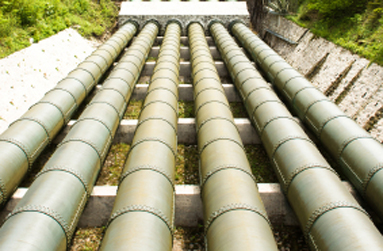Are you suffering from pipeline fatigue? Sorry to break the news, but you won’t be feeling better any time soon. You could still face months of roller-coaster reports about U.S. President Barack Obama’s true Keystone colours. And B.C. Premier Christy Clark hasn’t finished harping about the five conditions Northern Gateway must meet to earn her nod.
Now, it’s Quebec Premier Pauline Marois’s turn to tease (or torture) Canadians with endless passive-aggressive, maybe-maybe-not remarks about TransCanada’s proposed Energy East pipeline. That $12-billion megaproject is barely off the drawing board, so there’s no end in sight to the debate about its merits. Ms. Marois promises to “consult” Quebeckers, so it’ll be a while.
Remember when Prime Minister Stephen Harper went to New York and called Keystone XL a “complete no-brainer?” By inviting Americans to question that assumption, his comments actually increased pressure on Mr. Obama to nix the pipeline aimed at carrying oil-sands crude to the Gulf of Mexico coast – which he did, rejecting TransCanada’s initial Keystone proposal.
Mr. Harper has not officially endorsed the Energy East plan – stressing that it’s subject to an independent review by the National Energy Board. But his comments about the 4,400-kilometre conduit to transport Alberta crude through Quebec and on to Saint John have hardly been neutral. Quebeckers are pretty sure where he stands on this “extremely exciting project.”
That’s more likely to hurt than help TransCanada’s case in Quebec. Luckily for the company, Mr. Harper hasn’t yet gone so far as to label Energy East a complete no-brainer. The Prime Minister has undertaken a renewed charm offensive in Quebec (which may have more do with pipeline politics than the 2015 election), but his name remains mud in much of the province.
Among a population still reeling from the July tragedy that obliterated part of picturesque Lac-Mégantic, Energy East’s proponents have seized on the relative safety of pipelines over rail for shipping crude. They have held out the promise that Quebec’s two refineries, which currently use primarily Algerian crude, will be able to rely on an abundant supply of cheaper domestic oil.
But beyond that, they have struggled to articulate the advantages of Energy East for Quebeckers. Some have suggested that Quebec will benefit indirectly from more economic activity in Alberta and New Brunswick, along with the additional federal tax revenues generated in those provinces. But that’s a leap of faith most Quebeckers are unlikely to make.
Those confident that the Lac-Mégantic disaster bolsters the case for pipelines should consider the logic of environmentalists seeking to shut down the oil sands. Before Lac-Mégantic, pipeline proponents could argue that oil-sands crude would make its way to market one way or another. But if stricter regulation and public opposition render oil by rail unfeasible or uneconomical, it becomes easier to argue that blocking Energy East will at least slow oil-sands development.
For Quebeckers who consider their province the greenest in Canada – and who value their reputation in greener-than-thou Europe – there is an abiding reluctance to become complicit in any venture that increases greenhouse gases and prolongs the planet’s dependence on oil.
Opponents of Energy East point out that neither of Quebec’s refineries are currently configured to process heavy crude, while oil producers would fetch a higher price on export markets, giving them little incentive to sell to domestic refiners. With Energy East, “Quebec would just become a conduit for Western oil. It would assume all the risks, with very weak economic benefits,” prominent Quebec environmentalist Steven Guilbeault told Le Devoir.
All of this leaves Ms. Marois in a bind. Her minority government is hanging by a thread. Her party is leaking support to pro-environment challengers on the left. Yet, Quebeckers’ pragmatic streak makes it impossible for her to reject Energy East out of hand. The opposition Liberals and Coalition Avenir Québec are favourably disposed to the project.
The “nation-building” talk that makes Energy East an easier sell elsewhere has less resonance in Quebec. But even a sovereigntist like Ms. Marois knows that being a constructive partner can be good politics in Canada. You will need your neighbours some day.
Still, could the Premier make her support for Energy East conditional on stronger federal action on climate change? That could be a win-win proposition.
Tune in a few years down the road to find out how it’s all turned out.
Next in the pipeline: Pauline Marois


























Laissez un commentaire Votre adresse courriel ne sera pas publiée.
Veuillez vous connecter afin de laisser un commentaire.
Aucun commentaire trouvé